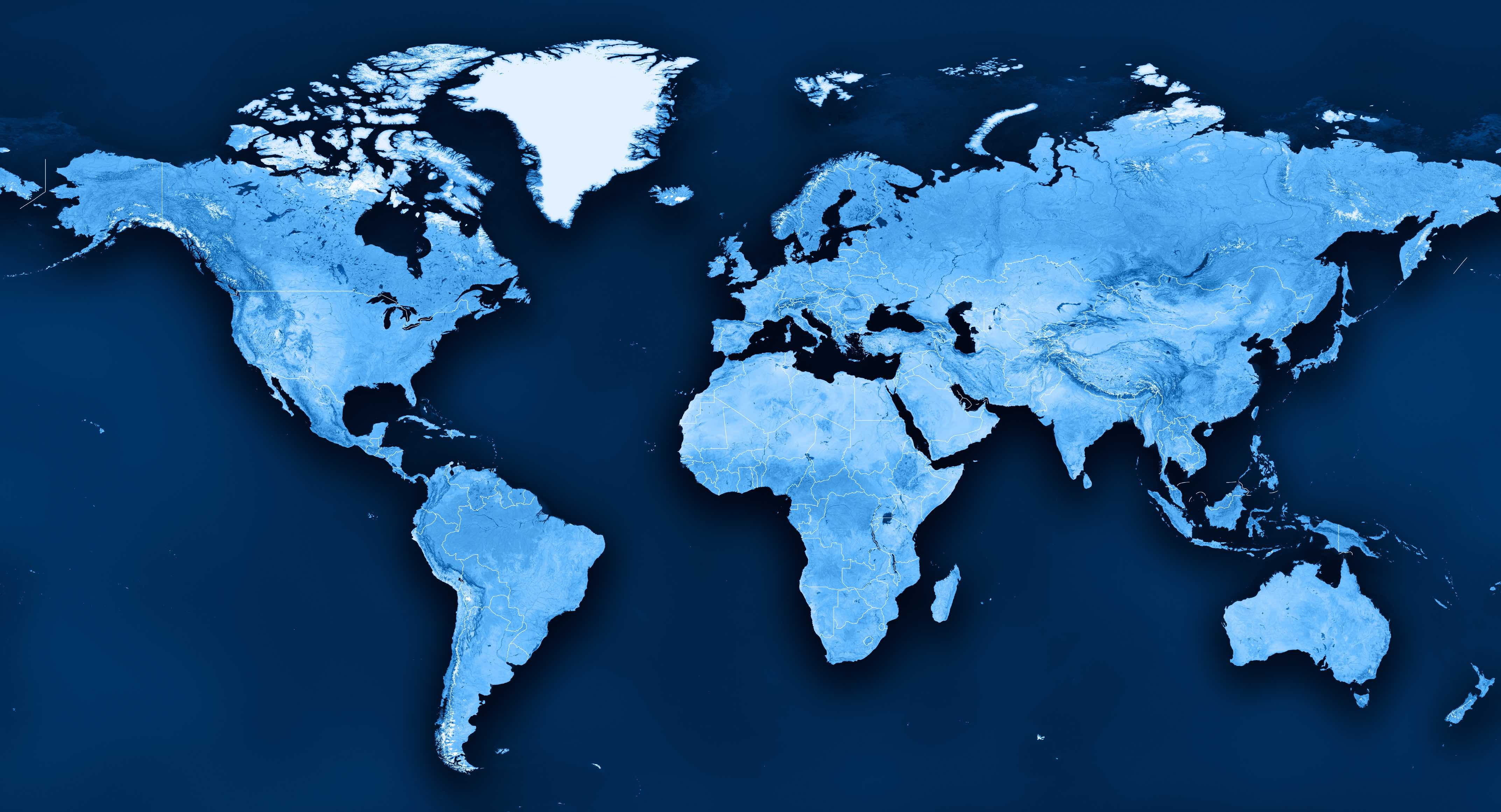The spread of the Covid-19 virus is having a massive impact on the travel industry. In view of the highly dynamic situation, there is enormous uncertainty about future options for action. What measures will accompany us in the preparation of the trip and on our travels? How will we travel after the Covid-19 crisis? And the most exciting question: when will we be able to travel without borders again? Dr. Julius Heintz, Managing Partner of Deutsche und Österreichische Visa und Konsular Gesellschaft (www.dvkg.de,www.oevkg.at) outlines aspects that are highly likely to influence future travel behaviour. The assessments and outlook represent a snapshot in time.

Figure 1: Documents are necessary for every trip.
Austria, Europe and countries around the world have closed their borders for entry. The aim is to protect their own populations from the import of the Covid-19 virus by travelers. The Federal Ministry for European and International Affairs in Austria has issued numerous travel warnings. The unstable situation worldwide carries the risk of not being allowed to enter and, above all, not being allowed to leave the country. Alexander Schallenberg, Austrian Foreign Minister, explains in a press release: „Our goal is very clear: we want full freedom of travel again as soon as possible. But until the coronavirus is defeated globally, it will not be possible."(1) In addition to Alexander Schallenberg, Austrian Chancellor Sebastian Kurz does not hold out any hope of a quick return to normal summer vacations in 2020: "As long as there is no vaccine or effective medication, this disease will be with us. The unrestricted freedom to travel as we have known it will not exist for that long either.(2) In the Federal Republic of Germany, German Foreign Minister Heiko Maas pointed out that citizens who go on vacation abroad despite the current travel warning will not be recalled by the government in an emergency.(3)
The opening of borders within the European Union will be decided individually by the nation states according to the status of the case numbers. The EU Commission will support the states with recommendations, including the coordinated lifting of internal border controls.(4)
Distant destinations in Asia, America and Africa will keep their borders closed even longer for their own protection. Countries with limited healthcare systems, in particular, will only open their borders at a later date.
Different documentation is required for entry depending on the destination. Business travelers within the EU/EFTA require an A1 certificate and, if necessary, an EU notification. Tourists and business travelers often require a visa to travel to non-European countries. Numerous documents are required to apply for a visa. A study in Germany shows that the clear majority (86.9%) of commercial enterprises and organizations/institutions with business travelers in Germany expect a greater bureaucratic effort, e.g. for entry documents.(5)

Figure 2: Documentary evidence becomes more extensive
The scope of documents is being expanded, primarily due to health regulations. It is to be expected that the focus on the state of health will become an important part of the documentation obligation in the future. The scope and content of the documentation will vary depending on the application period:
1) Period until the possibility of vaccinationa) Proof of health:
Travelers may be required to show proof of health when applying for a visa. For a visa to China (6) or Süd-Korea, for example, a health certificate, issued within 48 hours before applying for a visa, is required. In addition, a doctor's certificate (medical certificate from the family doctor or company doctor) may be required.
b) Rapid test:
As soon as reliable rapid tests are available to the general public, a negative result of the rapid test will be requested in addition to the application documents. In the case of air travel, a rapid test will be repeated shortly before departure, e.g. at the airport / gate . Only passengers with a negative test result will be allowed to fly. In the case of a business trip within Europe, a negative result will be uploaded as proof of documentation in the notification process. This rule will be implemented from 1. As of May 1st, 2020, commuters between Slovakia and Austria must present a negative corona virus test which must not be older than 30 days. A Covid-19 test may also become necessary for tourists, as this measure is already being discussed in Austria(7).
2) Period after a vaccination opportunity
The vaccination option will speed up the return to travel. For visa applications and EU notifications, proof of vaccination may become mandatory. The presentation of proof of vaccination is comparable to the presentation of a yellow fever vaccination when applying for a visa to many African countries. Depending on the nature of the vaccination protection, entry will probably only be possible with full protection (possibly In the latter case, either the longer valid visas with multiple entries will be placed on the test stand;or upon re-entry the presentation of the vaccination certificate is required.

Figure 3: Entry into many African countries only with proof of vaccination
All health certificates only reflect the state of health at a point in time in the past. There is always the possibility that the state of health may change between the time of measurement and the time of entry. This means that there is still a risk for every country that the traveler will introduce the virus into the country. If travel restrictions are to be reduced, it is all the more important to trace the chains of contact. Seamless tracing will only be feasible with technical possibilities. It is to be expected that countries will require proof of certain apps on personal smartphones or digital devices when entering the country. The bottom line is that the state health ministry always travels with you and a necessary requirement for entry makes monitoring possible.(8) Travelers will have to rethink their preparations and decide which digital devices they will take with them when traveling in the future. It cannot be ruled out that frequent travelers will have several smartphones, tablets and notebooks for certain travel destinations. The Federal Office for the Protection of the Constitution in Germany already warned in the fourth quarter of 2019 that there is a considerable risk of digital communication via notebook and cell phone when traveling to China.(9)

Figure 4: Digital devices are becoming an obligatory travel companion
Protecting our own population and avoiding overloading the healthcare system from outside is leading to the closure of national borders worldwide to the greatest possible extent. At the same time, the Austrian Federal Ministry for European and International Affairs has currently issued travel warnings for 26 countries. The lifting of border closures and travel warnings is necessary for a return to borderless freedom of travel.
1) Border closures
The lifting of border closures will be treated very differently by countries around the world. Different criteria will be applied, which will lead to the opening of borders for selected states. Bilaterally, states will agree on a gradual opening with accompanying measures. In Austria, for example, an opening for German tourists is being discussed (10).
2) Travel warning from the Federal Ministry for European and International Affairs
As long as there is a travel warning from the Austrian Ministry of Foreign Affairs, tourist travel is not recommended. Business travelers should consult with their employer about suitable measures. The employer is responsible for taking suitable protective and safety measures as part of their duty of care.
The Federal Ministry for European and International Affairs has published numerous safety instructions since the beginning of the Covid-19 crisis.(11) Entry is only possible in a few exceptional cases. When entering a foreign country, strict health checks are carried out, including a fever measurement and an interview about past contacts with potential Covid-19 persons. A subsequent 14-day quarantine is ordered in most cases. A 14-day quarantine is also mandatory after returning to Austria. A few occupational groups receive a special permit to continue practicing their profession even without a 14-day quarantine period. The waiver of a 14-day quarantine period will be decided individually by each country and may also depend on the country from which the traveler entered the country.

Figure 6: Travel warning worldwide
It is recommended at this point to always register with the Federal Ministry for European and International Affairs when traveling abroad(12). In emergencies, leaving your contact details with the travel registration will make it easier for the local consulate to contact you.
„Social distancing“ and „community masks” are terms that are finding their way into everyday coronavirus travel jargon. In future, the travel case will contain gloves and face masks. The range of liquids will be supplemented by a 100 ml disinfectant. Social distancing will be a challenge throughout the journey. Will Economy Class be booked without a free middle seat, or will the more spacious Business Class be preferred? Will the lounger on the right and left be reserved at the hotel or will you just go to the pool?
For a return to limitless travel, a vaccine or medicine will first have to exist across the board. Travel will be possible again in four phases: i) domestic travel, ii) travel between countries with bilateral agreements, iii) intra-continental travel (e.g. EU) and iv) international travel. Prof. Christian Laesser explains in the Neue Zürcher Zeitung that there will be a return to international freedom of travel in 2021.(13)

Figure 7: Canada, empty stalls waiting for tourists
Business travel will revive sooner than tourism. The clear majority (86.9%) of commercial enterprises and organizations/institutions with business travelers in Germany, for example, expect the number of business trips to increase again, but not to return to the previous level. 63% expect the need for travel to be more carefully considered in the future.(14) According to the Federal Competence Centre for Tourism in Germany, in a realistic scenario, tourism will reach the normalization phase at the end of June 2022 and thus generate 80% of the achievable turnover across the industry compared to the reference year 2019.(15) A similar picture can be expected for Austria.
Covid-19 will have a significant impact on future travel. The state of health will become the key criterion for whether people are allowed to travel. Initially, a medical certificate will be provided, and rapid tests will then be carried out to determine the state of health for Covid-19. After the introduction of a vaccination option, entry will be refused without proof of Covid-19 vaccination. The preparation of documents, proof and the selection of digital devices to take with you will become more extensive and complex. The criteria for issuing visas and entry permits and the checks on postings within Europe are being supplemented by the aspect of health. The many different measures and criteria will remain unclear for a long time until uniform standards are established.
The Austrian Visa and Consular Company navigates you to your visa, your EU notification, A1 certificate or your legalization in a simple, secure and goal-oriented way.
The assessments and outlook represent a snapshot in time.
Dr. Julius Heintz, week 20, 2020
___________________________________
Source list:
(1) Federal Ministry for European and International Affairs, https://www.bmeia.gv.at/das-ministerium/presse/aussendungen/2020/04/aussenminister-schallenberg-wir-lassen-niemanden-im-stich-der-unverschuldet-in-eine-notlage-geraet/
(2) Salzburger Nachrichten SN https://www.sn.at/politik/innenpolitik/oesterreich-wird-das-comeback-gelingen-85816066
(3) Bild Zeitung, https://www.bild.de/politik/inland/politik-inland/corona-heiko-maas-sieht-keinen-grund-fuer-lockerung-von-reisewarnungen-70092916.bild.html
(4) European Commission, https://ec.europa.eu/info/live-work-travel-eu/health/coronavirus-response/european-roadmap-lifting-coronavirus-containment-measures_de
(6) Chinese Visa Application Service Center, https://www.visaforchina.org/CBR_EN/upload/file/20200414/Health%20Declaration%20Form%20for%20Visa%20Application.pdf
(7) Faz.net, https://www.faz.net/aktuell/wirtschaft/corona-oeffnet-oesterreich-die-grenzen-fuer-deutsche-touristen-16733171.htm
(9) Federal Office for the Protection of the Constitution, https://www.verfassungsschutz.de/de/oeffentlichkeitsarbeit/newsletter/newsletter-archive/bfv-newsletter-archiv/bfv-newsletter-2019-04-archiv/bfv-newsletter-2019-04-thema-04
(10) Faz.net, https://www.faz.net/aktuell/wirtschaft/corona-oeffnet-oesterreich-die-grenzen-fuer-deutsche-touristen-16733171.html
(11) Federal Ministry for European and International Affairs, https://www.bmeia.gv.at/reise-aufenthalt/reisewarnungen/
(12) Travel Registration, https://www.bmeia.gv.at/reise-aufenthalt/auslandsservice/reiseregistrierung
(13) Neue Züricher Zeitung, https://www.nzz.ch/reisen/corona-tourismus-experte-zum-reisen-in-zeiten-des-virus-ld.1549850
(15) Federal Competence Center for Tourism, https://www.kompetenzzentrum-tourismus.de/ueber-uns/aktuelles/356-recovery-check-belebung-des-touristischen-geschaefts-wird-nicht-vor-ostern-2021-abgeschlossen-sein
(16) Picture credits: shutterstock and istockphot